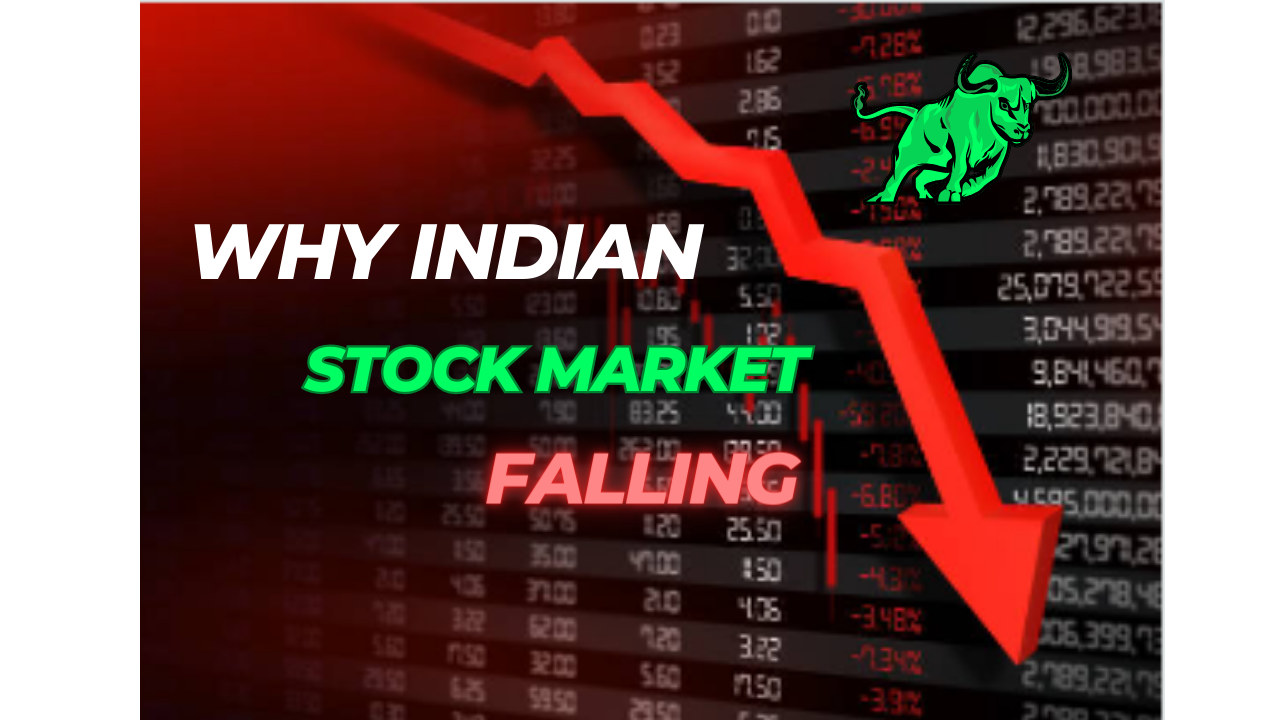Stock market today: On Thursday, the Indian stock market continued to decline for a third straight session, lagging behind weak global cues. Following Wednesday’s largest intraday fall since June 13, 2022, the Nifty 50 index began today’s trading session down.
Nifty 50 reached its intraday low of 21,285.55 on Thursday and began at 21,414.20 compared to the prior close of 21,571.95. At 21,462.25, the index ultimately closed 110 points, or 0.51 percent, down.
In contrast to the prior closing of 71,500.76, the Sensex began at 71,018.86. It then dropped by roughly 835 points to reach the intraday low of 70,665.50. At 71,186.86, the index finally closed 314 points, or 0.44 percent, lower.
See Also: The share price of HDFC Bank continues to fall, falling more than 10% in just two days.
Avinash Gorakshkar, Head of Research at Profitmart Securities, discussed additional factors that are undermining Dalal Street sentiment. He stated, “Some other reasons that have triggered profit booking in the global stock market are the overbought condition at the Indian stock market and the rise in US bond yield in recent sessions.”
According to HDFC Securities’ Deepak Jasani, a negative breach of 21449 might push the Nifty 50 index towards 21,000 in the coming days, with 21,851 acting as resistance.
Decoding the Mysteries: Unraveling the Factors Behind Today’s Downturn in the Indian Stock Market
Introduction:
The Indian stock market, often touted as a roller coaster ride for investors, is no stranger to fluctuations. Today, as the market experiences a downturn, investors find themselves on the edge of their seats, wondering about the forces at play. In this blog, we embark on a journey to unravel the complexities behind the current dip in the Indian stock market.
Global Economic Headwinds:
One of the primary catalysts behind today’s market decline is the ripple effect of global economic challenges. As the world grapples with uncertainties like geopolitical tensions, trade disputes, and the aftermath of the ongoing pandemic, investors are adopting a cautious stance. The interconnected nature of global economies means that events on the other side of the globe can have profound effects on the Indian stock market.
Inflationary Pressures:
In recent times, rising inflation has emerged as a significant concern for investors and policymakers alike. The fear of inflation eroding the value of money and affecting corporate profitability can lead to a sell-off in the stock market. Today’s downturn might be a reflection of heightened inflationary pressures, prompting investors to reassess their portfolios and risk tolerance.
Regulatory Changes:
The Indian stock market is no stranger to regulatory changes, and today’s downturn may be a reaction to recent policy shifts. Whether it’s alterations in taxation norms, changes in foreign investment regulations, or adjustments in market trading mechanisms, investors often react swiftly to regulatory uncertainties. Exploring recent regulatory updates can provide valuable insights into the market’s current state.
Corporate Earnings and Guidance:
Earnings season plays a pivotal role in shaping market sentiment. If major companies report lower-than-expected earnings or provide conservative guidance for the future, it can trigger a sell-off. Investors keenly watch quarterly reports, and any discrepancies between expectations and actual results can lead to a temporary downturn in the market.
Sentiment and Psychological Factors:
Investor sentiment is a powerful force that can sway the market in either direction. Negative news, rumors, or a general sense of pessimism can lead to panic selling. Understanding the psychology of market participants and the role of sentiment in shaping short-term trends can shed light on the reasons behind today’s downturn.
Conclusion:
While the Indian stock market’s downward journey today may seem perplexing at first glance, a closer examination of global economic factors, inflationary pressures, regulatory changes, corporate earnings, and sentiment can offer valuable insights. Investors are reminded that the stock market is inherently volatile, and short-term fluctuations are part and parcel of the investment landscape. Staying informed, maintaining a long-term perspective, and diversifying portfolios are key strategies for navigating the dynamic nature of the stock market.
LEGAL DISCLAIMER:
Investments in the equity market are subject to market risks. Read all the related documents carefully before making any investment decisions. We do not provide stock recommendations on this site. Readers should do their own independent research or consult their advisors before making any investing decisions. The information contained on this site is solely for academic purposes, and we do not vouch for the factual accuracy of the data or information presented on this site.
![]() Checkout Latest Finance Blog
Checkout Latest Finance Blog
![]() Checkout out Technology latest technology blog.
Checkout out Technology latest technology blog.
![]() Checkout Latest Tips&Tricks Blog
Checkout Latest Tips&Tricks Blog

